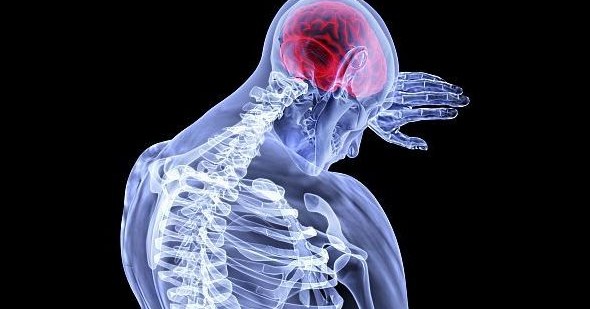On June 30, 2015, CLBB and the Petrie-Flom Center hosted a public symposium bringing together the leading experts in neuroscience and law to wrestle with the critical question: what can, and should, the law do with what we know about pain and the brain? To answer this, panelists discussed whether brain imaging can be a “pain-o-meter” that tells courts when a person is in pain, if fMRI technologies can help give us a new perspective on intractable chronic pain, and how to understand the intimate relationship between pain and emotion, if there even is such a distinction. Together, experts and audience members explored how the law can use brain science to get smarter about a subject that touches everyone.
Welcome Remarks and Keynote Speeches
I. Glenn Cohen, JD, is Professor of Law and Faculty Director of the Petrie-Flom Center for Health Law Policy, Biotechnology, and Bioethics at Harvard Law School.
Judith G. Edersheim, JD, MD, is Co-Founder and Co-Director of CLBB. She is also an Assistant Clinical Professor of Psychiatry at Harvard Medical School and an attending Psychiatrist in the MGH Department of Psychiatry.
Amanda C. Pustilnik, JD, is the 2014-2015 Senior Fellow on Law & Applied Neuroscience at CLBB and the Petrie-Flom Center for Health Law Policy, Biotechnology, and Bioethics at Harvard Law School. She is also a Professor of Law at the University of Maryland.
Irene Tracey, DPhil, is the Nuffield Professor of Anaesthetic Science and Professor of Clinical Neurology at Oxford University. She is also the Director of the Oxford Centre for Functional Magnetic Resonance Imaging of the Brain.
Henry T. Greely, JD, is the Edelman Johnson Professor of Law and Director of Center for Law and the Biosciences, at Stanford Law School. He is also a Professor (by courtesy) of Genetics at the Stanford School of Medicine, Chair of the Steering Committee of the Center for Biomedical Ethics, and the Director of the Stanford Program in Neuroscience and Society.
Panel 1: Can Brain Imaging Be a Pain-O-Meter?
Karen Davis, PhD, is a Professor of Neuroscience and the Canada Research Chair in Brain and Behaviour at the University of Toronto. She is also the Head of the Division of Brain, Imaging & Behaviour Systems at Toronto Western Research Institute (TWRI).
Martha Farah, PhD, is the Walter H. Annenberg Professor of Natural Sciences and the Director of the Center for Neuroscience & Society at the University of Pennsylvania.
Henry T. Greely, JD, is the Edelman Johnson Professor of Law and Director of Center for Law and the Biosciences, at Stanford Law School. He is also a Professor (by courtesy) of Genetics at the Stanford School of Medicine, Chair of the Steering Committee of the Center for Biomedical Ethics, and the Director of the Stanford Program in Neuroscience and Society.
Panel 2: “The Pain Brain” in Evidence & Policy
Amanda C. Pustilnik, JD, is the 2014-2015 Senior Fellow on Law & Applied Neuroscience at CLBB and the Petrie-Flom Center for Health Law Policy, Biotechnology, and Bioethics at Harvard Law School. She is also a Professor of Law at the University of Maryland.
David Borsook, MD, PhD, is Professor of Anesthesiology at Boston Children’s Hospital and Harvard Medical School, along with the Director of the P.A.I.N. (Pain and Analgesia Imaging Neuroscience) Group at McLean, MGH, and Boston Children’s Hospitals. He is also the former Director of the Pain Division of MGH.
Michael S. Pardo, JD, is the Henry Upson Sims Professor of Law and the Director of the Program on Cross-Disciplinary Legal Studies at the University of Alabama. He is also the former Chair of the American Association of Law Schools Section on Evidence.
Panel 3: A New Paradigm for Understanding Pain & Emotion
David A. Seminowicz, PhD, is an Assistant Professor in the Department of Neural and Pain Sciences at the University of Maryland.
Francis X. Shen, JD, PhD, is an Associate Professor of Law and the McKnight Land-Grant Professor at the University of Minnesota Law School. He is also a Visiting Scholar at the Petrie-Flom Center for Health Law Policy, Biotechnology, and Bioethics at Harvard Law School.
Nita Farahany, JD, MA, PhD, is a Member of the Presidential Commission for the Study of Bioethical Issues, Professor of Law, and Professor of Philosophy at Duke University. She is also the Director of Duke Center for Science & Society and the Director of Duke University MA in Bioethics & Science Policy.
Panel 4: Emotional Pain: Real to the Brain But not Real to the Law?
Lisa Feldman Barrett, PhD, is University Distinguished Professor of Psychology at Northeastern University. She is also a Research Neuroscientist at the MGH Martinos Center for Biomedical Imaging, a Research Scientist at the MGH Department of Psychiatry, and a Harvard Medical School Lecturer in Psychiatry.
Tor Wager, PhD, is Associate Professor of Psychology and Neuroscience and the Director of the Cognitive and Affective Neuroscience Laboratory at the University of Colorado, Boulder.
This event is part of the Project on Law and Applied Neuroscience, a collaboration between the Center for Law, Brain & Behavior at Massachusetts General Hospital and the Petrie-Flom Center for Health Law Policy, Biotechnology, and Bioethics at Harvard Law School. Cosponsored by the Center for Bioethics at Harvard Medical School, and with support from the Oswald DeN. Cammann Fund.
Watch video of the entire “Visible Solutions: How Neuroimaging Helps Law Re-Envision Pain” event below, or explore past events on pain, scientific translation, and the legal implications of brain science on CLBB’s Vimeo channel.



